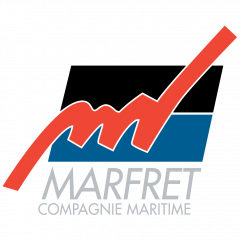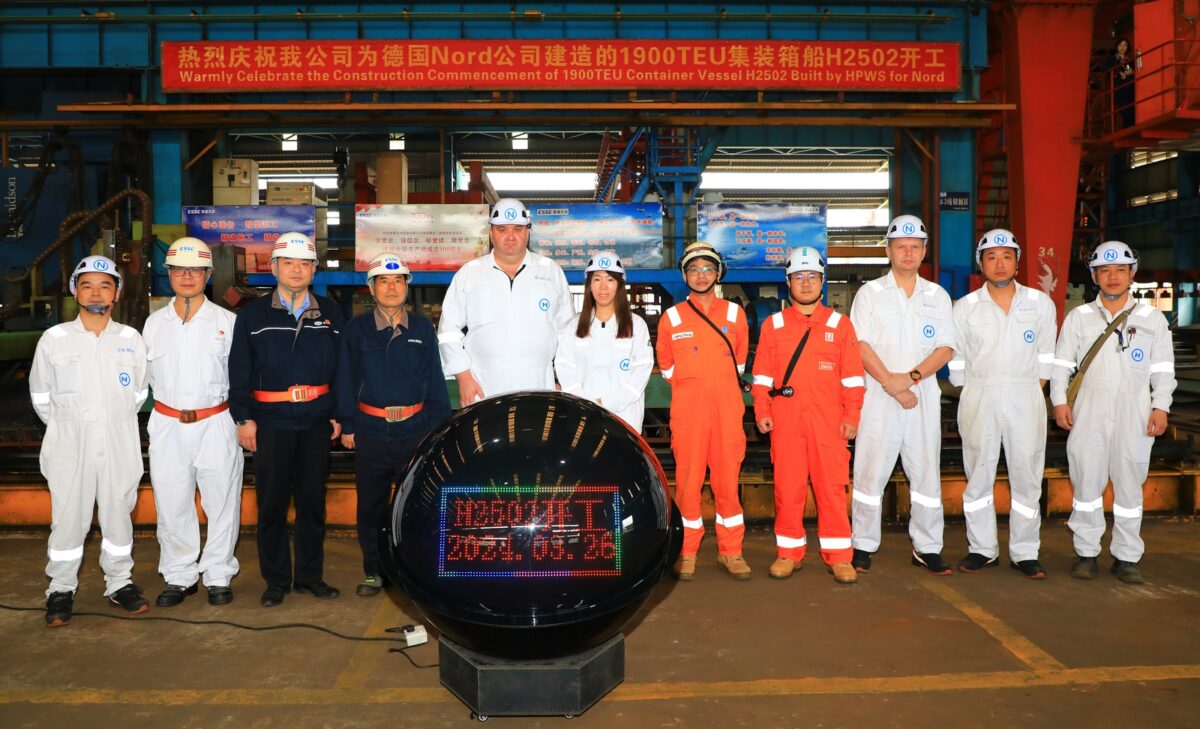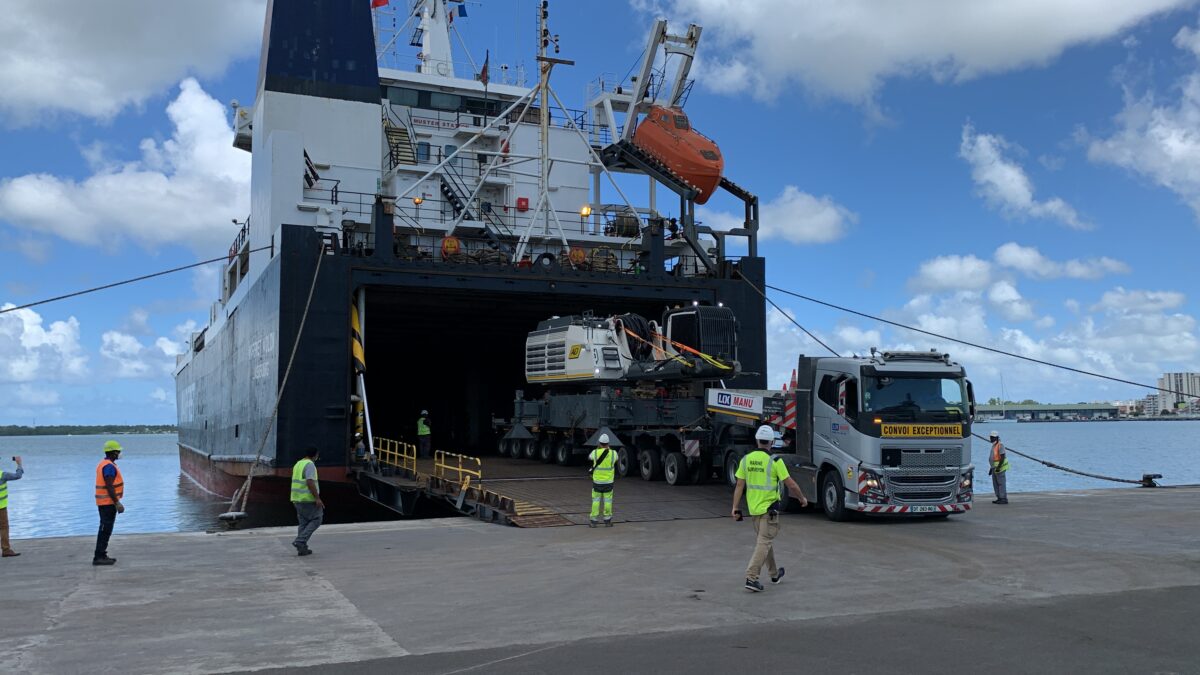The signature name for its Caribbean service, Ferrymar is about to become eponymous with the latest Marfret vessel under construction in China, set to replace the Marin. The vessel’s launching took place on 5th May last, with delivery scheduled in August. It was an exciting moment for all the teams involved, that you can watch on this video.
The Marin, long a familiar sight for Caribbean islanders, is seeing out its last few months of service as a Marfret vessel. The company is about to begin a new chapter in its history of serving the Caribbean with the construction of a purpose-built ro-ro vessel. “This is a really exciting project, one that again underlines our total commitment to serving the overseas territories,” says a delighted Marfret managing director Guillaume Vidil, holding an impressive 1/200th scale model of the ship.
For many months now, the Chinese shipyards of Jiansu Dajin Heavy Industry Co, have been busy welding together the steel jigsaw on the banks of the Yangtse River, under the supervision of a dedicated multinational team assembled for the Marfret project.
The launching is an important event in more ways than one, since it marks the start of the navigability trials and the payment of the fourth instalment for the construction.
The ro-ro vessel was designed in collaboration with the Chinese engineering firm Sdari, which drew up the initial design based on Marfret’s requirements. Supervision of the project was entrusted to Alwena Shipping.
The vessel’s characteristics are specifically adapted inter-island navigation. With its length of 120m and 22m beam, the Ferrymar will have a load capacity of 1200 linear metres, exceeding that of the Marin. Its three decks will be able to carry more trailers, accompanied and unaccompanied, as well as a greater number of containers.
With its car deck headroom of 10 metres, the Ferrymar has an expected service life of around 30 years. The ship is equipped with twin screws powered by an engine featuring the latest technological innovations in terms of fuel efficiency, making it compliant with the most stringent EEDI standards.
Over the past few years, Marfret has continued to reinforce its presence in the West Indies.
The Ferrymar service connects the ports of Marigot, Gustavia, Pointe-à-Pitre and Fort-de-France, acting as a vector for the strengthening of economic ties between the four Caribbean islands. The aim is to create a large enough market for local industry to develop, making the islands less dependent on imports and helping bring down the cost of living locally.



